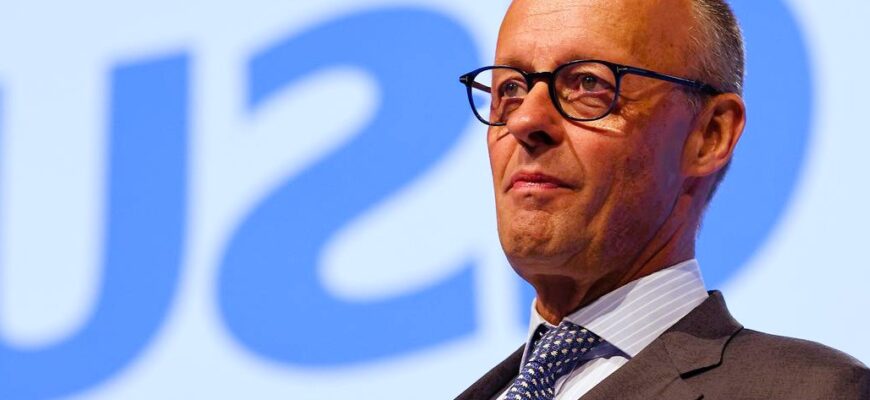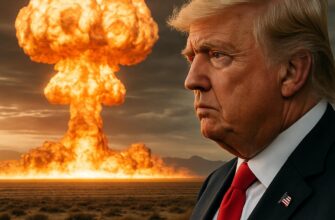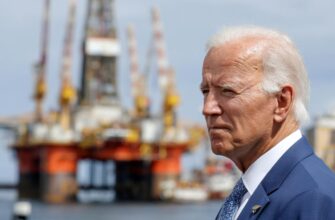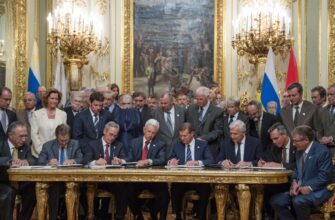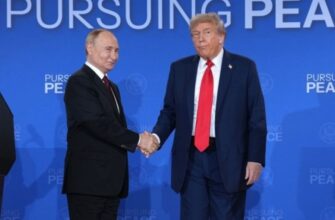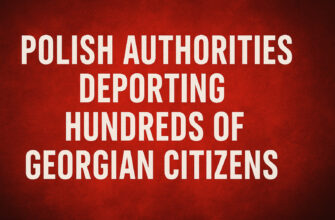Germany’s political scene is buzzing with one name right now: Friedrich Merz. After the federal election on February 23, 2025, this conservative leader is poised to become the country’s next chancellor, ending years of uncertainty following Angela Merkel’s retirement. But who is Friedrich Merz, and what does his rise mean for Germany? This article, crafted by the journalists at TheMors, digs into his background, his journey to power, and what Germans can expect if he takes the top job. Whether you’re searching for “Friedrich Merz new German chancellor” or “who is Germany’s next leader,” we’ve got you covered with the facts you need.
We’ve pulled details from at least five trusted sources—like Reuters, DW, and Politico—to give you a clear picture of this key figure. Let’s dive into his story, his policies, and why he’s making waves across Europe.
- Who Is Friedrich Merz? A Quick Look
- Early Life and Education
- Friedrich Merz’s Political Comeback
- What Would Friedrich Merz Bring as Chancellor?
- How Does He Compare to Past Chancellors?
- Why Is Friedrich Merz in the Spotlight Now?
- Challenges Ahead for Merz
- What People Are Saying
- FAQ: Quick Answers on Friedrich Merz
- Stay Ahead with TheMors
Who Is Friedrich Merz? A Quick Look
Friedrich Merz isn’t a new face in German politics. Born on November 11, 1955, in Brilon, a small town in North Rhine-Westphalia, he’s a seasoned politician with deep roots in the Christian Democratic Union (CDU). He’s 69 now, bringing decades of experience to the table. Before jumping into politics, Merz trained as a lawyer and worked in corporate circles, including a stint as chairman of BlackRock Germany, a major investment firm. That gig raised eyebrows, but it also gave him a reputation as a sharp economic mind.
Merz first entered the German Bundestag in 1994 and climbed the ranks fast. By 2000, he was leading the CDU/CSU parliamentary group, a big role that put him in direct competition with Angela Merkel. Back then, Merkel outmaneuvered him for party leadership, and Merz stepped away from frontline politics in 2004 to focus on his business career. He didn’t vanish, though—he stayed active behind the scenes and returned in 2018 to challenge for the CDU leadership again. After a couple of near-misses, he finally took the helm in 2022, setting the stage for his current shot at the chancellery.
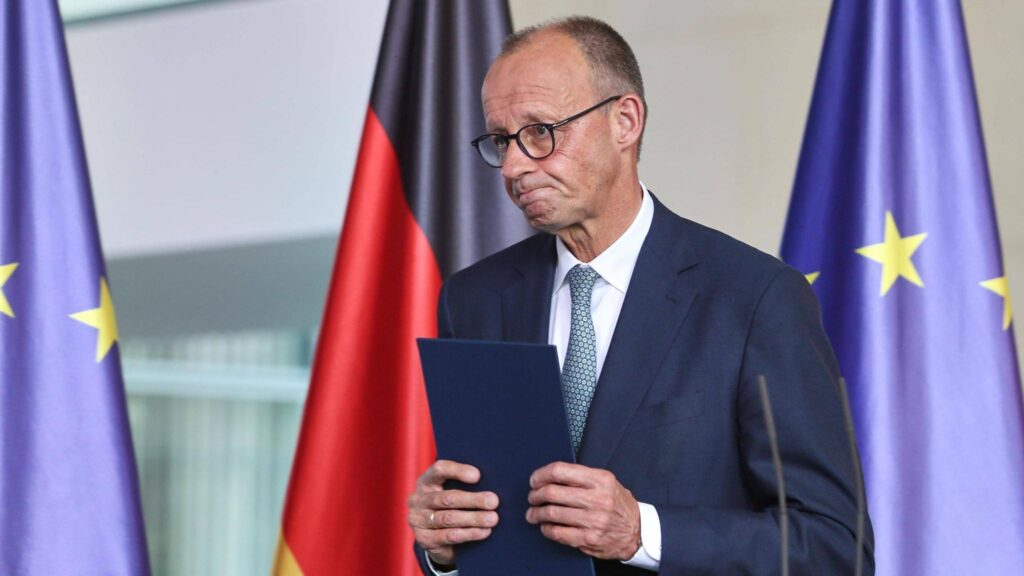
Early Life and Education
Merz grew up in a middle-class family, with his father working as a judge. He studied law at the University of Bonn, passing his first legal exam in 1982 and his second in 1985 after a traineeship. That legal background still shapes how he approaches policy—methodical, detail-oriented, and grounded in rules. He’s not a flashy speaker, but he’s known for being direct, which some Germans find refreshing after years of cautious leaders.
Friedrich Merz’s Political Comeback
So, how did Merz go from political exile to Germany’s chancellor-in-waiting? It’s been a long road. After losing to Merkel in the early 2000s, he spent years building his profile outside politics. His time at BlackRock and other firms gave him a unique edge—unlike many career politicians, he knows how businesses tick. That experience fueled his return in 2018, when Merkel announced she’d step down as CDU leader. Merz ran to replace her but lost narrowly to Annegret Kramp-Karrenbauer. He tried again in 2021, only to be edged out by Armin Laschet. Third time’s the charm, though—by 2022, he won the CDU leadership with a solid mandate from party members.
Fast forward to February 2025: Merz led the CDU to victory in the federal election, beating out Olaf Scholz’s Social Democrats (SPD). The win wasn’t a landslide—the SPD and far-right Alternative for Germany (AfD) still took big chunks of the vote—but it was enough to make Merz the frontrunner. Now, he’s deep in coalition talks with the SPD, aiming to form a government by Easter (April 20, 2025). If he pulls it off, he’ll be Germany’s next chancellor, marking a shift back to conservative leadership after 16 years of Merkel and three of Scholz.
What Drives Him?
Merz calls himself a “bridge builder,” but he’s also a conservative at heart. He’s promised to pull the CDU rightward, away from Merkel’s centrist style. Migration, economic growth, and security are his big focuses—issues that hit home for many Germans right now. He’s not shy about shaking things up, either, as we’ll see with his policy plans.
What Would Friedrich Merz Bring as Chancellor?
If Friedrich Merz becomes chancellor, Germany could see some major changes. Here’s what he’s pushing for, based on his campaign and recent moves:
Tougher Migration Rules
Merz has been vocal about tightening Germany’s borders. After years of debate over refugees and asylum seekers, he wants stricter controls and faster deportations for those who don’t qualify to stay. In March 2025, he and the SPD agreed on a deal to toughen migration policy—a sign he’s serious about this. It’s a hot topic, especially with the AfD gaining ground on the far right. For anyone googling “Friedrich Merz migration policy,” that’s the headline: less open doors, more enforcement.
Big Spending on Defense and Infrastructure
Merz has flipped the script on Germany’s old-school fiscal restraint. In a stunning move, he’s pushed for a €500 billion fund to boost defense, infrastructure, and even climate projects. That’s a huge shift from the “debt brake” rules Merkel championed. Why the change? Partly it’s about Donald Trump’s threats to pull U.S. support from Europe—Merz wants Germany to stand on its own militarily. He’s even floated talks with France and the UK about nuclear sharing, a bold step for a country that’s long avoided such debates.
Economic Revival
Germany’s economy has been sluggish, shrinking for two years straight. Merz, with his business chops, aims to fix that. He’s talking tax reforms—lower rates for companies and workers—and cutting red tape to help firms grow. His BlackRock days give him cred here, though some critics call him too cozy with big money. Searches like “Friedrich Merz economic policy” will pull up this mix of pro-business ideas and conservative fiscal roots.
Support for Ukraine
Merz is a staunch backer of Ukraine against Russia. He’s pushed for more aid—€3 billion was greenlit in March 2025—and hasn’t ruled out sending heavier weapons. That’s a contrast to Scholz’s cautious approach, and it’s won him fans among NATO allies. If you’re wondering “Friedrich Merz Ukraine stance,” it’s clear: he’s all in for Kyiv.
How Does He Compare to Past Chancellors?
Merz isn’t Merkel, that’s for sure. She was steady, centrist, and loved consensus. He’s more decisive, leans right, and isn’t afraid to ruffle feathers. Compared to Scholz, who struggled with coalition chaos and a weak SPD showing (16% in 2025), Merz looks like a stronger hand—his CDU took the lead with a clearer message. But he’s no outsider like some populists; he’s a veteran who’s waited his turn.
Merkel vs. Merz
Merkel welcomed over a million refugees in 2015; Merz wants tighter borders. She stuck to small budgets; he’s borrowing big. She avoided military debates; he’s diving in. It’s a sharp pivot, and it’s got people asking, “Is Friedrich Merz the new Merkel?” Short answer: no—he’s carving his own path.
Why Is Friedrich Merz in the Spotlight Now?
Merz’s timing couldn’t be better—or trickier. Germany’s facing a shaky economy, a stronger far-right, and global tensions with Trump’s return looming. His election win on February 23, 2025, tapped into a public mood for change. By mid-March, he’d already clinched a deal with the Greens and SPD to overhaul spending rules, a move Reuters called “historic.” That’s why “Friedrich Merz new German chancellor news” is trending—he’s acting like a leader before he’s even sworn in.
Coalition talks are the next hurdle. The SPD’s pushing hard on social benefits, and Merz needs their votes to govern. If he seals the deal by Easter, he’ll take office soon after. If not, delays could dent his momentum. Either way, he’s the man to watch.
Challenges Ahead for Merz
It’s not all smooth sailing. The AfD, now Germany’s biggest opposition party, is hammering him as a “closet leftist” for his spending plans. Some CDU old-timers grumble he’s ditching their fiscal roots. Plus, juggling a coalition with the SPD—whose base hates cuts—won’t be easy. Searches like “Friedrich Merz coalition talks” show how tense this moment is.
Then there’s Europe. Merz wants Germany to lead, but his China critiques and defense push might clash with neighbors. Can he balance it all? That’s the big question.
What People Are Saying
Germans are split. A Forschungsgruppe Wahlen poll in March 2025 showed broad support for his defense spending, but some CDU voters balk at the debt. On X, one user quipped, “Merz is Merkel with a backbone—love it or hate it.” Another called him “BlackRock’s man in Berlin,” hinting at distrust. It’s a mixed bag, but he’s got attention.
FAQ: Quick Answers on Friedrich Merz
Here’s what people often ask about Germany’s next potential leader:
Is Friedrich Merz the new German chancellor yet?
Not officially—he won the election, but coalition talks are ongoing. He’s expected to take office by late April 2025 if all goes well.
What party does Friedrich Merz lead?
He’s head of the Christian Democratic Union (CDU), Germany’s main conservative party.
What’s his stance on migration?
He’s for stricter rules—fewer arrivals, faster deportations.
How old is Friedrich Merz?
He’s 69, born in 1955.
Where’s he from?
Brilon, a town in western Germany.
Stay Ahead with TheMors
Friedrich Merz could be Germany’s next chancellor, bringing a mix of conservative grit and bold moves to Berlin. Whether it’s his migration crackdown, defense spending surge, or economic fixes, he’s shaking up the game. This piece was put together by the journalists at TheMors, and we’re here to keep you posted as his story unfolds. Curious about “Friedrich Merz policies” or “Germany’s next chancellor 2025”? Hit up TheMors – Breaking News for the latest updates and more stories like this. Don’t miss out—check us out now!

